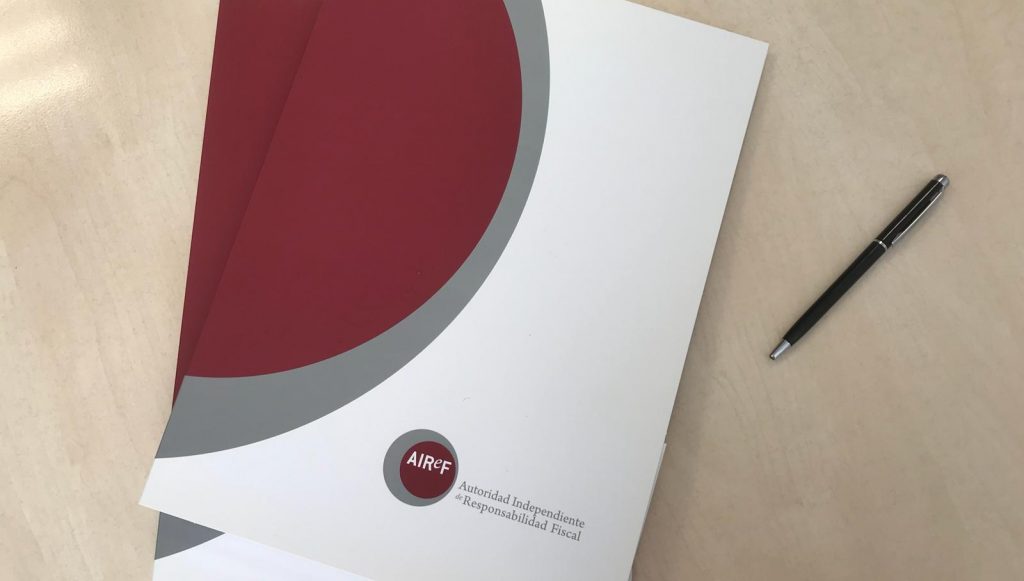- AIReF has identified weaknesses since 2014, exacerbated in the 2023 General State Budget (GSB) with a lack of information on the measures to combat the crisis, significantly reducing their usefulness as a fiscal policy tool
- To address these shortcomings, AIReF proposes a series of measures to strengthen the GSB as a tool for fiscal and economic policy, accountability, and control
- AIReF proposes promoting a medium-term perspective with multi-year budgetary scenarios to frame the GSB
- It aims to address the current fragmentation of the budgetary process by improving the coherence and integration of the Stability Programme Update (SPU), the GSB and the Budgetary Plan
- Measures to improve budget information include providing data for year-on-year comparisons, reconciling data between budgetary and national accounts, results-based accounts and offering comprehensive information on fiscal risks
- AIReF proposes expanding the information submitted to Parliament for debate and approval, making the GSB more comprehensive and transparent
- Although the analysis focuses on the General State Budget (GSB), the proposed improvements are applicable to the budgets of the Autonomous Regions and Local Governments in regard to their regulations and jurisdiction
The Independent Authority for Fiscal Responsibility (AIReF) published an Opinion on the Budgetary Procedure on its website today, suggesting reforms to the General Budgetary Law to address weaknesses detected in the General State Budget (GSB). These weaknesses significantly diminish its effectiveness as a genuine tool for fiscal policy and, a posteriori, accountability and control.
AIReF has identified these weaknesses in the budgets, both in terms of information published and procedures, since the start of its activities in 2014. These deficiencies were further exacerbated in the 2023 Budget, where the absence of information on potential measures to combat the crisis, with a very high estimated impact, significantly undermines its usefulness as a true instrument of fiscal policy and, a posteriori, for accountability and control.
These weaknesses identified have led to the issuing of recommendations and proposals to the Ministry of Finance and Civil Service for their rectification, under the premise that a robust budgetary process helps improve the quality of public finances and debt sustainability. These proposals are now consolidated in this Opinion, including specific suggestions for improvements.
As regards their content, AIReF notes that the GSB lacks multi-year scenarios that allow it to be framed with a medium-term orientation that fiscal policy geared towards sustainability should include. Furthermore, it does not include information that allows for the reconciliation of the budget balance with the national accounts, which makes it difficult to assess its compatibility with stability targets. Furthermore, the GSB does not reflect the actual evolution of revenue and expenditure compared with the previous year and does not provide a complete and updated list of fiscal risks that could affect the annual balance. In this regard, neither does the GSB provide sufficient detailed information about the planned, announced and temporary economic policy measures to absorb fiscal risks. Finally, the quality of the targets and indicators of the expenditure programmes is inadequate, resulting in a more formal than real application of results-based budgeting.
As regards the procedure, AIReF has found that it is not possible to ensure coherence between the main elements of the budgetary cycle: the Stability Programme Update (SPU), the GSB and the Budgetary Plan. As a result, the budgetary process, in practice, is fragmented.
To address these weaknesses, AIReF proposes amendments to the General Budgetary Law (GBL), which are specific and limited in scope, and would be in addition to the successive modifications of the GBL since its approval in 2003. Furthermore, they align with international best practices identified by such organisations as the OECD. The suggestions aim to expand the information submitted to Parliament and enhance or specify the content of the GSB.
Specifically, AIReF proposes promoting a medium-term perspective by employing multi-year budgetary scenarios to frame the budgets. It also supports improving coherence with the main budgetary documents by promoting the integration of the Stability Programme Update (SPU), the GSB and the Budgetary Plan, thereby rectifying the fragmentation of the budgetary process.
Better Information
It also proposes improving budgetary information by providing comparability with the previous year, explaining the differences and incorporating a comparison with the most up-to-date forecasts at year-end. Additionally, it suggests adapting the GSB to comply with fiscal rules, including information that allows for the reconciliation of data between budgetary and national accounts, as defined by the fiscal rules.
Another proposal to improve budget information involves preparing results-based accounts, improving the definition of targets and indicators, and establishing an ex post control system whose evaluation is public and focuses on the definition of targets and indicators, as well as considering their compliance with budgetary allocations.
To improve the anticipation of potential deviations, it suggests that the GSB should include comprehensive, updated and quantified information on the main fiscal risks that could have a significant impact on the annual balance. And to improve its usefulness as an instrument of economic and fiscal policy, it proposes that the GSB should encompass potential measures, whether simply planned, announced or temporarily in force, to absorb risks in the event that they materialise.
Finally, AIReF proposes promoting accountability to Parliament by expanding the information submitted for debate and approval, making the GSB more comprehensive and transparent. According to AIReF, all these proposals would strengthen the GSB as a tool for fiscal and economic policy, as well as for accountability and control, which is fundamental since the existence of a robust budgetary process contributes to improving the quality of public finances and debt sustainability.






